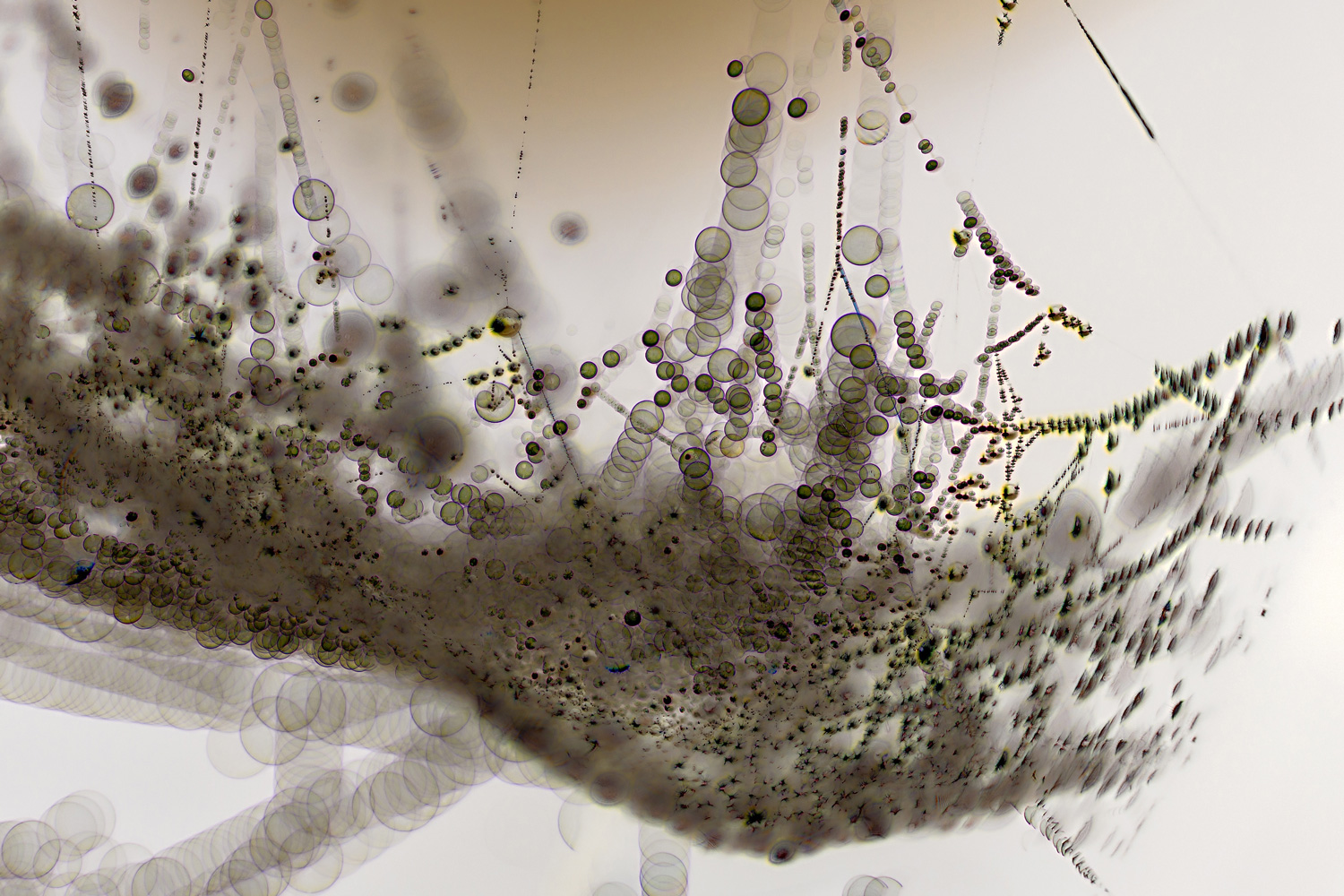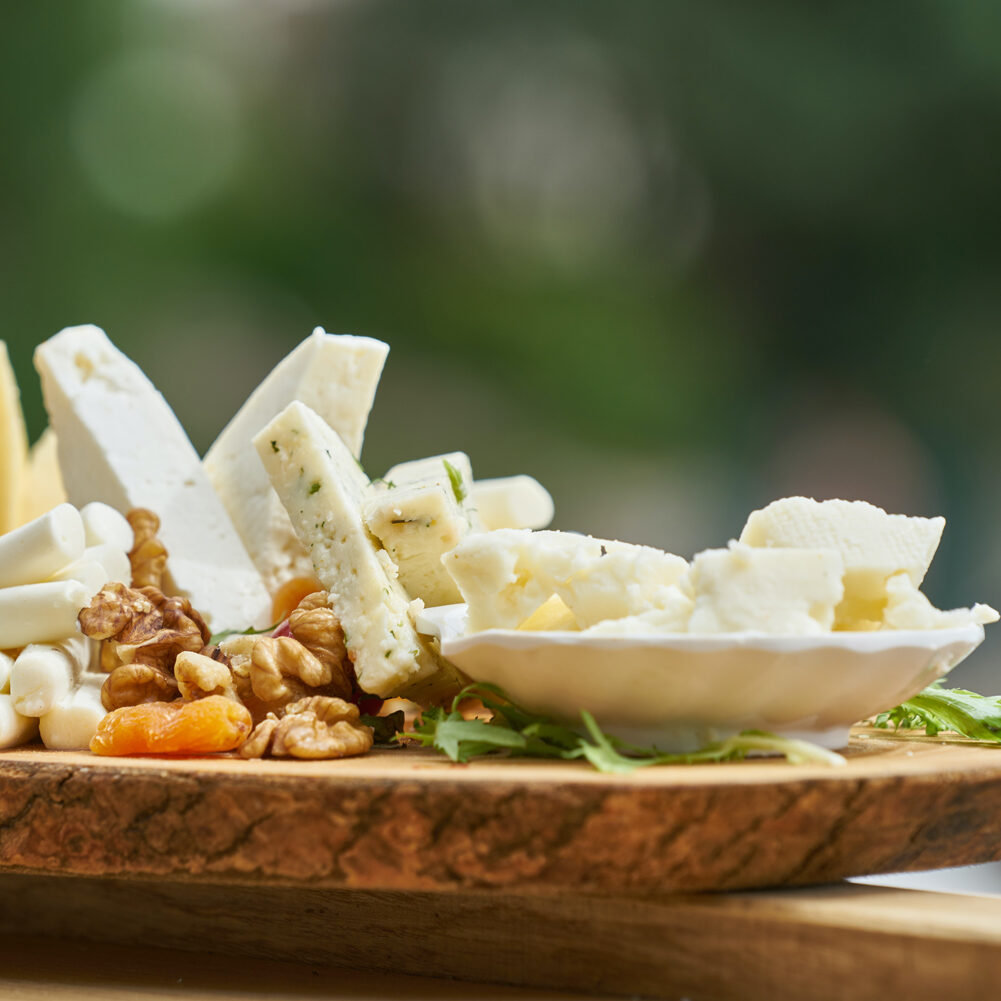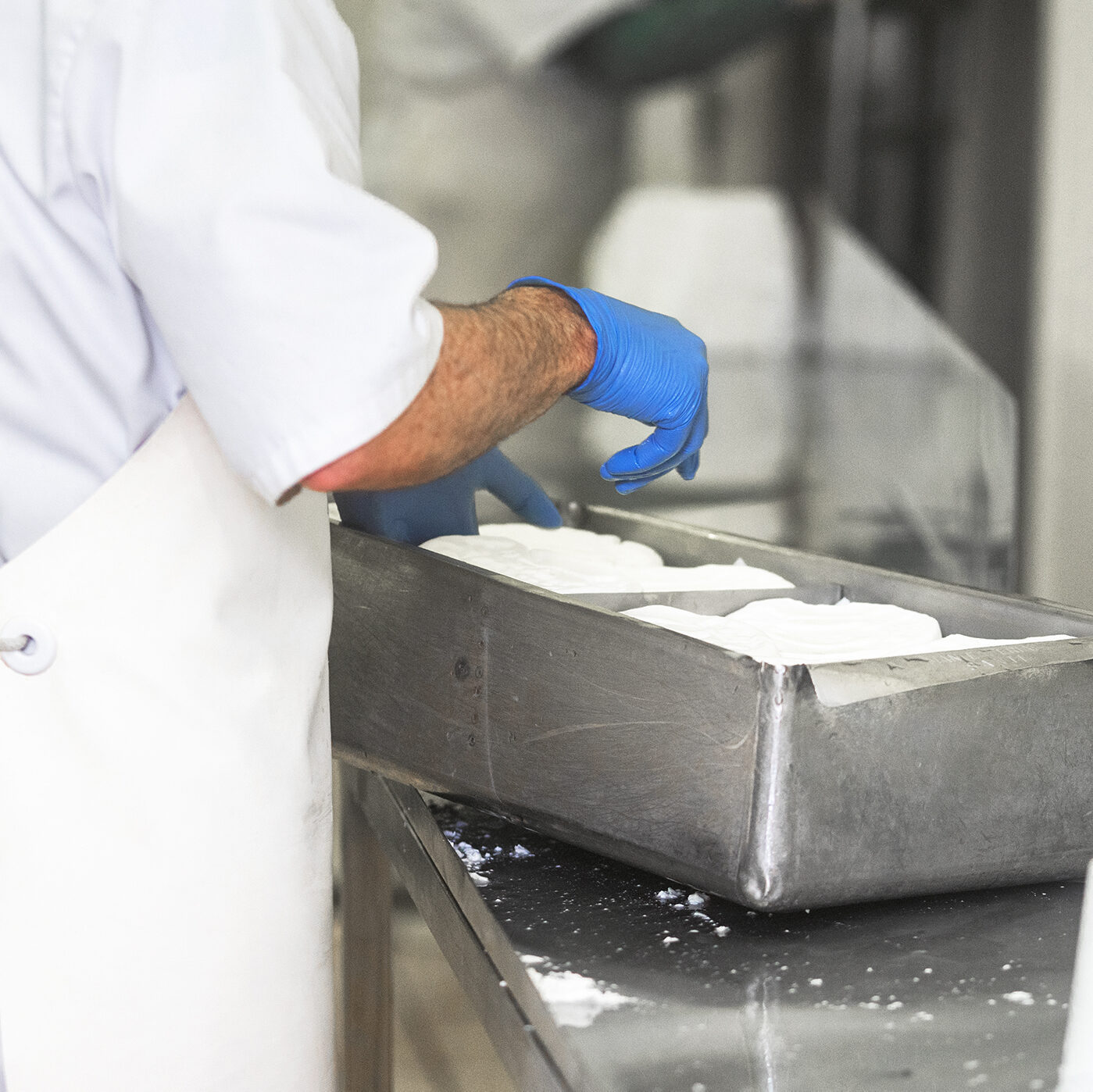

APPLICATION
Application of a liquid ferment on a cheese curd form
A matured cheese develops a tasty, flavoured, or even coloured surface due to the development of microorganisms. The occurrence of the organisms was traditionally left to the atmospheric conditions. Being different from one place to another resulted in an assortment of traditional cheese types and variations in quality. Cheese-making industries want to control the growth of these microorganisms to achieve a constant rate. Selecting and applying a given mix of microorganisms improves the production.


BASE
Core products
The base product is a moist shape issued from the settling process of a standardised milk.
RECIPE
Ingredients
The mix comes in a dry and stable form.
It consists in :
- Microorganisms such as bacteria and yeasts
- Hydrocolloid
The mixes are tailored to suit the cheese’s desired gustative profile. They are supplied by companies specialized in microbiology and culture for food.






RECIPE
Ingredients
The mix comes in a dry and stable form.
It consists in :
- Microorganisms such as bacteria and yeasts
- Hydrocolloid
The mixes are tailored to suit the cheese’s desired gustative profile. They are supplied by companies specialized in microbiology and culture for food.
PROCESS
How does it work?
First, a liquid suspension is prepared by dispersing the dry mix with water. The rest must be homogeneous and stable. It is kept chilled to prevent the growth of the microorganisms before the application. The suspension is applied evenly on the surface of the cheese. They usually come in rows and lines corresponding to the moulds they have been formed with.
Given the number of individual products to process, it is a continuous or semi-continuous operation inserted in a more significant continuous production. Alternatively, the suspension may be applied on the mold’s inner surface before the moulding step of the curd into a shape. In both cases, the cheeses are left to mature.
Step 1.
Ferment preparation.
Step 2.
Application by dipping, spraying.
PROCESS
Coating system
The liquid is applied by dipping into a bath, with a curtain system, or better, with a spray system. Manifolds of several spray guns or mobile devices are designed to apply the required dose evenly while limiting losses out of the cheese surface. It also aims at limiting airborne pollution, which may become a health hazard.
PROCESS
Coating system
Spraying combines target precision and accurate dosage.
PRODUCT EVALUATION
How do you measure your success?
Key quality features
Evaluation is more than a gastronomic treat.


Homogeneity
It guarantees even growth under similar conditions.
Product integrity
The shape of the form must be preserved; the lesser handling, the better.
Taste
The flavour profile depends on the selection of microorganisms.
Key quality parameters
As it involves a live process, the control factors are more critical.


Dosage
The concentration and cost of the ferment require an accurate dosage.
Application
It should prevent spoiling the environment and avoid hazardous issues.
Stability
The ferment being a live liquid must be preserved from erratic growth. The equipment should be easy to clean to remove all traces of ferment between production runs.
APPLICATION
Discover more applications

